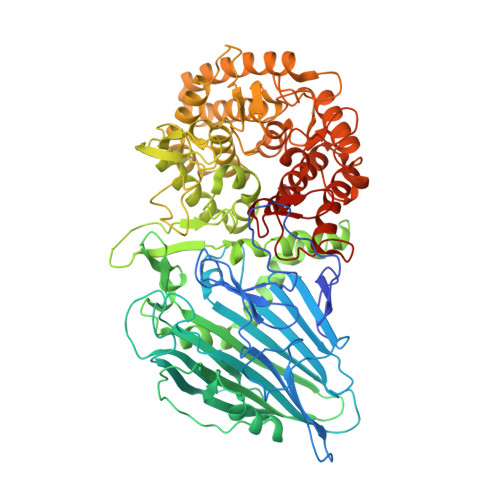Gluco-1 H-imidazole: A New Class of Azole-Type beta-Glucosidase Inhibitor.
Schroder, S.P., Wu, L., Artola, M., Hansen, T., Offen, W.A., Ferraz, M.J., Li, K.Y., Aerts, J.M.F.G., van der Marel, G.A., Codee, J.D.C., Davies, G.J., Overkleeft, H.S.(2018) J Am Chem Soc 140: 5045-5048
- PubMed: 29601200
- DOI: https://doi.org/10.1021/jacs.8b02399
- Primary Citation of Related Structures:
5OSS, 5OST - PubMed Abstract:
Gluco-azoles competitively inhibit glucosidases by transition-state mimicry and their ability to interact with catalytic acid residues in glucosidase active sites. We noted that no azole-type inhibitors described, to date, possess a protic nitrogen characteristic for 1 H-imidazoles. Here, we present gluco-1 H-imidazole, a gluco-azole bearing a 1 H-imidazole fused to a glucopyranose-configured cyclitol core, and three close analogues as new glucosidase inhibitors. All compounds inhibit human retaining β-glucosidase, GBA1, with the most potent ones inhibiting this enzyme (deficient in Gaucher disease) on a par with glucoimidazole. None inhibit glucosylceramide synthase, cytosolic β-glucosidase GBA2 or α-glucosidase GAA. Structural, physical and computational studies provide first insights into the binding mode of this conceptually new class of retaining β-glucosidase inhibitors.
Organizational Affiliation:
Department of Chemistry, York Structural Biology Laboratory , University of York , Heslington, York YO10 5DD , United Kingdom.


















